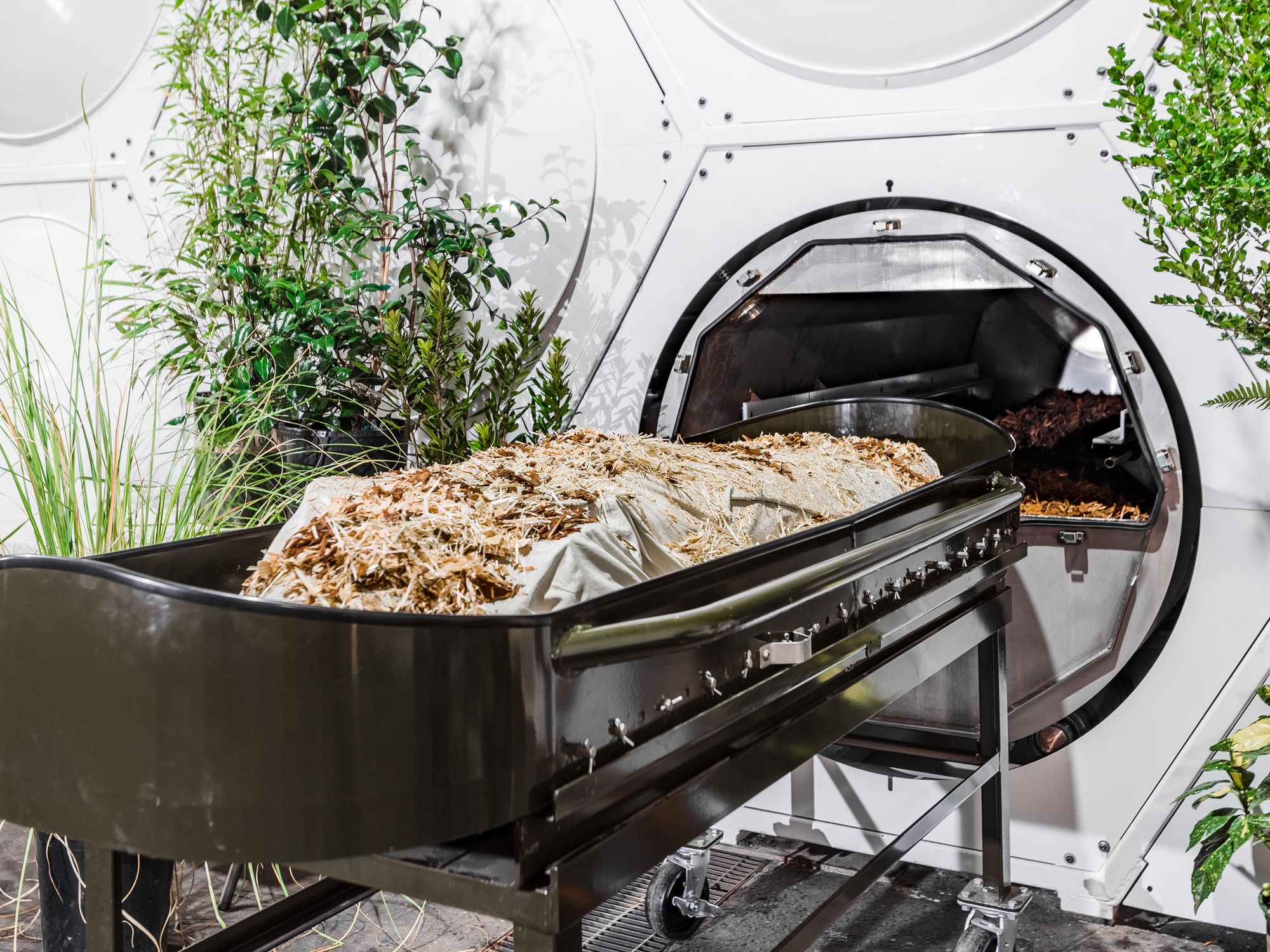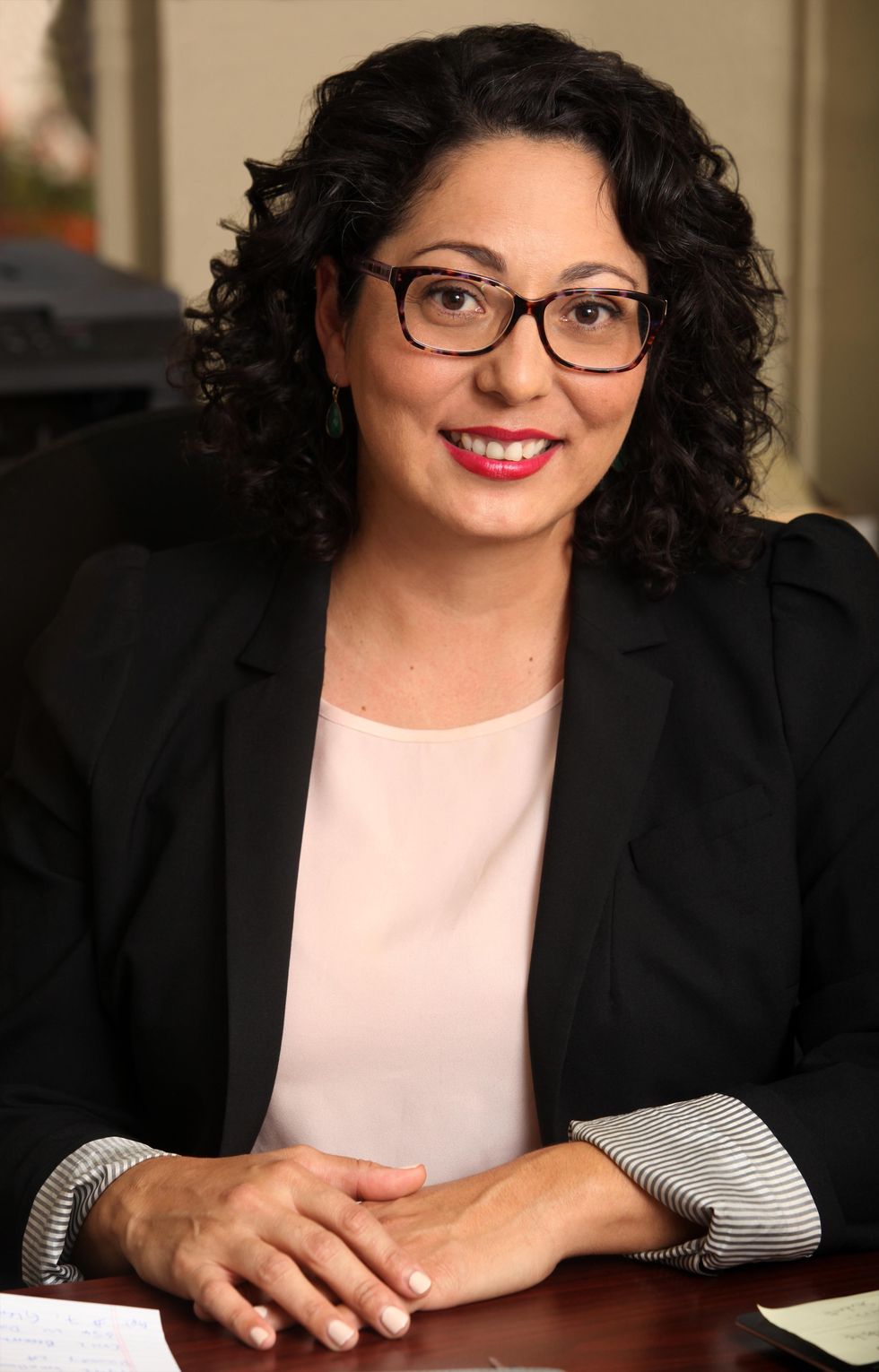California Legalizes Human Composting for ‘Green’ Burial Alternative
Decerry Donato is a reporter at dot.LA. Prior to that, she was an editorial fellow at the company. Decerry received her bachelor's degree in literary journalism from the University of California, Irvine. She continues to write stories to inform the community about issues or events that take place in the L.A. area. On the weekends, she can be found hiking in the Angeles National forest or sifting through racks at your local thrift store.

By 2027, citizens of California will be able to choose to have their body placed in a steel container along with wood chips, alfalfa and straw until their remains are turned into soil.
Assembly Bill 351 signed by Gov. Gavin Newsom last week, will create a state regulatory process for natural organic reduction better known as human composting—a burial method in which human remains naturally decompose over a 30-to-45-day period.
“This idea has been in my head for at least a dozen years,” Assemblymember Cristina Garcia (D-Bell Gardens) tells dot.LA.
She says she first introduced the bill in 2019, which is the same year Washington made human composting legal. Now three years later, the bill will finally take effect in California.
“Some of my family members like this idea while some of the family members don't like the idea,” Garcia says. “But what I think my family is comfortable with, is that it created a new option for Californians.”

Assemblymember Cristina Garcia of Bell Gardens.
Courtesy of Cristina Garcia
California is the fifth state to legalize human composting as a death care option with Massachusetts and New York looking to be next in line.
But one of the main reasons why this alternative method has not been widely accepted is due to the resistance of the Catholic Church–the only opponent listed to AB 351. Statements from various Catholic organizations including the New York Catholic Conference and Washington State Catholic Conference deemed the method of turning human remains into soil as inappropriate.
While many individuals from the Catholic community resist this method, Garcia said a traditional burial that often includes a casket leads to lots of chemicals that often leach into our soil and water in addition to the gasses that get emitted into the air that continue to contribute to climate change.
Climate is usually not on the top of people’s minds when burying a loved one. Cost, on the other hand, can be. In the United States, the average cost of a traditional funeral is around $7,000. But in Los Angeles, the average cost is closer to $9,000. That sometimes includes a casket (which can range from $1,200 to $10,000), but not a burial plot–with real estate starting at $3,000 in Los Angeles–or headstone (the average will set you back another grand.) With those kind of costs, it’s understandable why cremation has gained in popularity as a burial alternative.
Composting is not only better for the environment, but has the potential to save thousands on expenses. Funeral director Shawn LaValleur-Adame founded DIY Dying in 2018 to offer eco-friendly dispositions to her clients. Her do-it-yourself end of life and after-death care services includes natural organic reduction (NOR) or human composting, water cremation, fire cremation, natural green burial and full body sea burial. The hidden cost of composting, LaValleur-Adame says, has been the travel expenses.
Up until now, DIY has partnered with Herland Forest in Washington to transport the bodies thousands of miles that were then shipped back as compost. If the family chooses not to keep the soil, they have the option for their loved one’s compost to be buried at Herland Forest. These costs quickly add up, thanks to special regulations about transporting remains: LaValleur-Adame spends approximately $2,500 on transporting a body to Washington state, which comprises over half of DIY Dying’s $5,500 price tag for the service.
With the passage of this new bill, LavValleur-Adame says “I hope (funeral homes) they plan on adopting the new method.”
She adds, “it's taken a while to get approved because it's a new type of service and some people are having a hard time wrapping their head around the idea.”
One of the earliest adopters of human composting is Seattle-based Recompose, the first full service funeral home that offered these services to the public ever since Washington became the first state to legalize human composting as a death care option in 2019.
Recompose founder Katrina Spade spent 10 years creating a community around the idea that has been on her mind while in graduate school–composting human remains.
Spade studied architecture and became curious about her own body and her options for death care. When she looked into her options, she says that neither cremation or bench burial was appealing to her which drew her to apply her design practices to create a new one. After a call from a friend who told her how farmers have been composting livestock for years, Spade says that was when the light bulb went off.
Today, she continues to work alongside Garcia and others like her to enact change and figure out what legislature and bills need to be written in order to make human composting legal everywhere.
With the passage of this new bill, Spade says that Recompose plans on opening a facility in California. While she’s yet to determine the location of this new facility, Spade says that expanding her operation was always part of the plan and is one of the reasons why she and her team have been working so hard to get the bill passed.
“The American funeral industry has been ripe for some change in newness for a long time and consumers are really excited to have more than one new choice out there,” says Spade. “So I think it's really possible that this human composting option will spread far and wide.”
To that end, LaValleur-Adame says she looks forward to working with a local group, similar to Herland Forest. Adding that, not only will the costs go down for the families, but the carbon footprint will be significantly smaller since the body would not be traveling as far.
As for Recompose, the company touts that their process is "1/8 the energy of cremation", which saves an estimated metric ton of CO2 emissions per person over traditional methods according to BBC News.
“Getting more and more people to think green burial versus traditional burial is still an uphill battle,” LaValleur-Adame tells dot.LA, “got a lot of traditional sticklers in the funeral industry.”
Decerry Donato is a reporter at dot.LA. Prior to that, she was an editorial fellow at the company. Decerry received her bachelor's degree in literary journalism from the University of California, Irvine. She continues to write stories to inform the community about issues or events that take place in the L.A. area. On the weekends, she can be found hiking in the Angeles National forest or sifting through racks at your local thrift store.



 Image Source: Revel
Image Source: Revel
